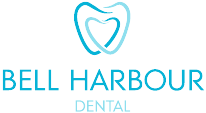See below for referral form and example patient reports we'll send to you.
Periodontal Referrals
Perio Initial Exam Report Sample
Why refer to our dental office?
We Respect Your Patient Relationships:
We never allow patients to switch to our office from referring offices. Our goal is to support your patient
care, not take away your patients. If they are sent to our office for a referral, we commit to never letting
them come to our general practice, for life. We make a note in our software that they are referred
patients, so we don’t accidentally make that mistake either.
State-of-the-Art Technology and Periodontist:
Dr. Betsy Mosquera is a well-respected and experienced periodontist. We are a fully digital practice and
use a Cone Beam Computed Tomography (CBCT) scanner and use surgical guides for all implant
placements. This advanced imaging technology helps us plan the best approach for each individual case.
Detailed Follow-up Reports:
After all treatment and evaluation visits, we provide a comprehensive follow-up report via email that
gives you all the information you need about the procedure and the patient's recovery. This ensures
seamless communication between our offices and helps you stay informed about your patient's care.




